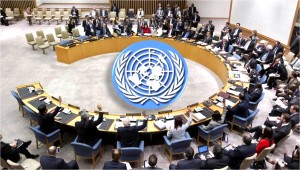Associated Press
By CARA ANNA
A small U.N. peacekeeping force in Western Sahara has been extended for another year but without the human rights monitoring mandate that residents have long demanded. The territory held by Morocco is called Africa’s last remnant of a colonial past.
The U.N. Security Council approved the extension Tuesday, but some members said no progress has been made on the dispute that has lingered for decades.
The mission in Western Sahara is the U.N.’s only peacekeeping force without a mandate to monitor human rights. Human rights groups say Morocco uses violence to stifle dissent.
Morocco’s ambassador, Omar Hilale, has said U.N. monitoring is needed only “when there is massive and huge violations of human rights.”
The U.N. special envoy was not allowed to visit Western Sahara for close to a year after U.N. chief Ban Ki-moon last year suggested human rights monitoring. In 2013, Morocco cancelled military exercises with the United States after the U.S. tried adding rights monitoring to the U.N. mission’s mandate.
The Polisario Front group wants independence for the mineral-rich former Spanish colony. The peacekeeping force monitors the ceasefire pending a referendum over the fate of the territory and its roughly half a million people, but that referendum has never taken place. The U.N. mission began in 1991.
On Tuesday, Hilale dismissed a call by the African Union for human rights monitoring, calling its position “biased.” The Polisario Front is an AU member. Morocco is not.
“Forty years after the start of this conflict, it is clear that the status quo is simply not sustainable,” Britain’s deputy ambassador, Peter Wilson, told the council. He pointed out Ban’s recent warning that the lack of a political solution on Western Sahara could have regional implications as extremist threats in the region grow.








